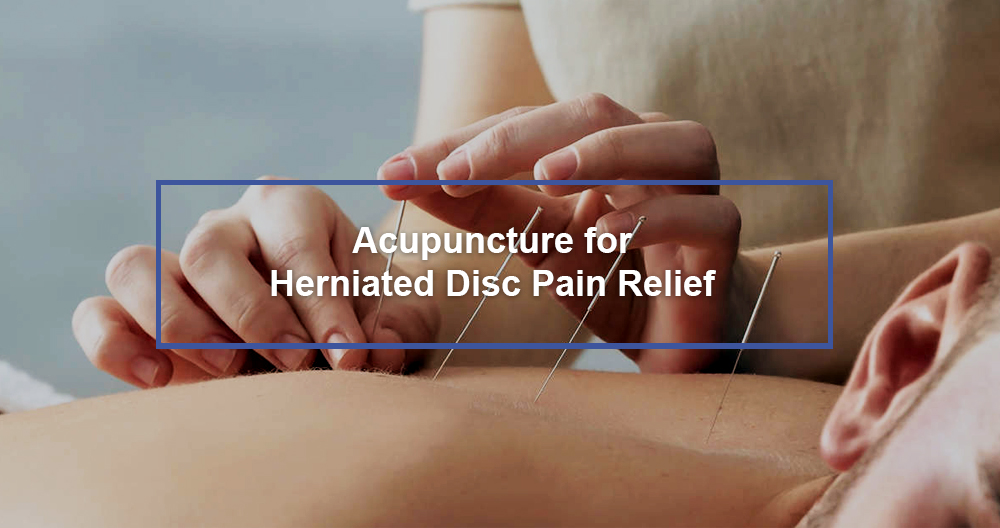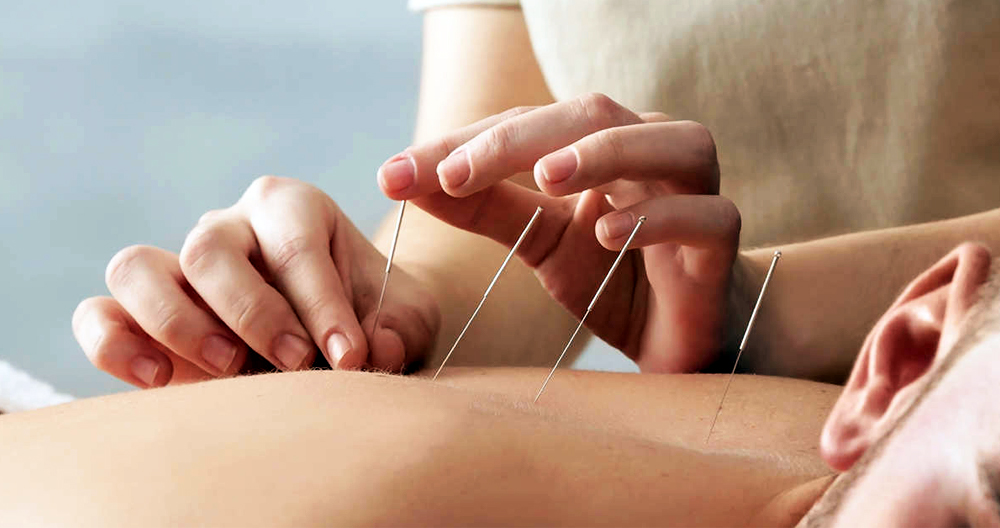
Why is there a shooting pain down my leg? What should I do when my neck is stiff and hurts? What can I do for a spasm of the lower back? These types of pain could be caused by a herniated disc, which presses against the spinal nerves. Acupuncture can be used to treat symptoms of a slipped disc. It is also a great way to speed up the healing process.
A herniated disc is also called a “slipped disc” or a “bulging disc”. This happens when pressure builds up on the spine’s nerves and muscles due to damage to the shock-absorbing cartilage. Prolapsed disc is also known as inflammation and swelling. This condition can cause severe pain in one area of your spine, such as the neck, lower back and sciatica, and radiate down your legs.
The vertebral column or backbone is made up of intervertebral and vertebral discs. These discs are used as ligaments and cushioning between bones. The discs provide shock absorption that protects the spine column. They are made of tough, fibrous outer cartilage layers with a gel-like substance in the inner. The soft, gel-like interior can be pushed to the outside and may cause damage to the tissue of the outer layer. This can put pressure on the nerves in the spine column.
A herniated disc is also called a “ruptured disc” and occurs most commonly in the lumbar spinal column. If the disc is pressing on a nerve, it can cause severe lower-back pain. A sciatica is a condition that can cause burning pain, shooting pain, numbness and/or tingling in the legs. It’s also known as lumbar radiculopathy. The sciatic nerve is actually an extensive bundle of smaller nerves which runs from the base of your spine to the top and travels through your buttocks. On each side, there is a sciatic bundle.
Around 90% of cases are due to herniated discs.Cervical disc herniation refers to a prolapsed disc between one of the seven cervical vertebrae, or the neck area. A herniated disc in the C2 area may cause pain in the eye or ear, as well as headaches. The most common area for disc herniation in the cervical spine is the C5, C6 or C7. This can lead to neck and/or shoulder pain.
While sciatica and neck pain from nerve compression in your spine will usually disappear on their own, sometimes it can cause discomfort over several weeks or months. The most common treatment for herniated disc pain involves rest and immobilization, as well as the use of anti-inflammatory drugs, muscle relaxers, pain relievers, and muscle relaxers. However, avoiding movement will not help to alleviate the root cause of the problem.
Moreover, pain medications and steroids can have undesirable side effects. Acupuncture can be used to relieve acute sciatica, neck, shoulder, and low back pain from slipped discs. This treatment is effective for short-term relief and long-term reduction of inflammation as well as helping to heal nerve damage.
Signs of Herniated Disc
The pain that can result from a disc herniation is intense and sharp. The disc affected may cause neck pain, low-back pain, sciatica, and pain in the buttock, leg, foot, and/or leg. Inflammation of the nerve area is responsible for pain or numbness. This happens because the disc’s center is compressed.
- A cervical herniated spine (in the neck), can cause severe pain or burning in the neck. There may be a subtle sensation that the neck feels tender to touch. This pain can be worse when doing vigorous activities or twisting or turning your head at a particular angle. It may feel stiff and restricted in movement of the head and neck.
- It is possible for pain to radiate down one’s arm and cause “electric shock-like” sensations in the hand and fingers.
- A pinching nerves in the cervical spine can cause weakness in the muscles of the neck, shoulder, arm, thumb, and fingers.
- The pain from a lumbar herniated disc (in the lower spine) is more likely down the leg than it is in the back. Usually, the pain is only on one side. Radiating pain can result from the compression of the sciatic nerve. It can be intense, burning, or sharp.
- Pain in the lower back or buttocks can also be caused by herniation of the lumbar disc. This type of pain can feel like a spasm, or it may feel like a throbbing. Applying heat or cold may help. The pain is usually worse if you are sitting, hunching or bent over.
- You may feel tingling or numbness in your buttocks, hips, legs, foot, or both.
- Foot drop refers to when nerve compression makes walking difficult and the foot is unable to lift fully.
A herniated disc can cause intense pain and suddenness. Most herniations in the spine discs can be resolved quickly without surgery.
What Causes Herniated Discs?
Most people between the ages (30 and 50) experience slipped discs or bulging discs. One sudden movement can lead to a ruptured disc, such as lifting something heavy or twisting an incongruent way, or even a strong sneeze. The disc’s outer wall was likely weaker before such an event.
As we age, disc degeneration can happen. The gradual development of chronic herniation over many years can lead to mild symptoms. Acute herniation can occur as a result of trauma such as an accident. This could cause greater damage to the outer layer of the disc (the annulus fibrosus), and allow the jelly-like material within (the nucleus pulposus) escape from its confinement.
Only a few cases of herniated discs are recommended (10-20%). Sometimes, the prolapsed spine is affecting the nerves so much that it affects bladder and bowel function. If the pain continues unabated for long periods of time, or is severe, then surgery may be an option.
A herniated disc surgery removes some disc tissue to relieve the nerve compression. If the spinal degeneration is severe, the procedure of spinal fusion may be used. This involves “fusing” the vertebrae together using screws and removing the disc tissue. While these surgeries may relieve pain from herniated discs, it is possible to have a long recovery time and the pain may not disappear completely.
Acupuncture can help a herniated disc
Traditional Chinese Medicine (TCM)has been used for pain management for thousands of years.
Herniated disc pain according to TCM is caused by:
- Injury to the spine
- Invasion of cold wind or damp
- Deficiency in liver or kidneys
Acupuncture involves the placement of fine needles along specific meridians. We also use infrared heat lamps and moxibustion to provide warm energy to certain parts of our bodies. TCM treatments for herniated discs often focus on strengthening Qi (lifeforce energy) and blood flow towards the kidneys. Clearing dampness and warming the lower back will also be a part of TCM.
One hospital-based clinical trial found that acupuncture and moxa warm, needle-based infrared heat therapy combined with gentle exercise had a 95% reduction in pain due to lumbar herniated.
A systematic review of acupuncture treatments for disc herniation has concluded that acupuncture provides better results than pain medications and lumbar traction. Study on the long-term effects of lumbar disc surgery for pain showed that patients who had received electric acupuncture for their symptoms experienced positive long-term results.
Here are 5 tips to heal a herniated disc naturally
The majority of pain caused by a herniated disc will go away in six weeks. You can reduce the pain and restore your freedom of movement by doing some things in the interim.
- Get treatment from an acupuncturist. A combination of acupuncture and herbal supplementation, tuina, moxibustion, tuina, and infrared heater therapy will help you to ease your pain and promote healing.
- The use of heat and cold therapy. You can apply gentle heat to your neck and lower back with a hot water bottle or heating pad. Alternatively, icing can be used to treat the affected area. This increases blood flow and reduces inflammation. It also soothes stiffness.
- Be active. If lower back pain or sciatica is causing severe pain or tingling sensations, you might be tempted to stay in bed. However, immobilization is not effective in relieving nerve pain. It is better to maintain the strength of the back muscles than to stay in bed. You will feel happier if you engage in low-impact activities, such as walking, biking, swimming.
- Your sleeping position should be checked. A slipped disc can make it difficult to stay in bed. A pillow can be used to support your knees and relieve tension in the lower spine. A firm orthopedic pillow is a good choice to align your neck.
- Nutrition is important for nerve health. For building and maintaining nerve tissues, certain nutrients are especially helpful. You should include B-6 and B-12 vitamins as well as Vitamin E, Vitamin E, Omega-3 and Omega-6 essential fatty acids in your daily diet. High-quality supplements are also recommended. Regular consumption of nuts, fish, and good plant-based oil should be encouraged.
Regular exercise, adequate sleep, and healthy nutrition will all go a long way in ensuring that pain conditions are resolved and do not return.

